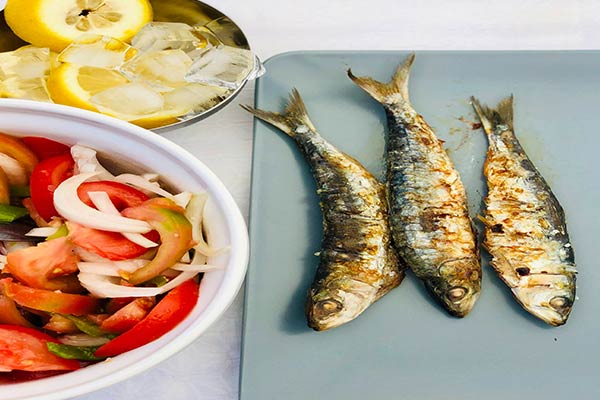Keto vs Paleo – Research the best option for your weight goals
Keto and paleo diets are two of the most popular right now. You likely see them mentioned online, or maybe you have a friend or family member who’s trying one.
Many people embrace these diets as a new lifestyle. Some do so to lose weight or keep it off. Others change the way they eat to better their overall health or improve physical or mental performance.
Despite the hype around paleo and keto diets, you may not know precisely how they work. You can learn more by reading the following comparison of their principles, food restrictions, and risks.
Keto

The term “keto” is short for ketogenic and refers to a low-carb diet. This type of eating plan is popular among people who are trying to lose weight. It can also help control blood sugar.
A keto diet can make it easier to manage epilepsy and heart problems. People with certain brain diseases may also benefit. Acne is another condition that often improves when using this eating plan.
How It Works
The keto diet is based on an understanding of how the body uses nutrients in food. Most tissues prefer glucose from carbohydrates for energy.
When you eat less than 50 grams of carbs per day, your body runs out of sugar to burn. After about three days on a keto diet, it starts breaking down fat and protein for energy. The process is called ketosis and can cause you to lose weight.
What Foods Are Allowed?
As explained above, consuming fewer carbohydrates can result in weight loss. So, the idea is to get most calories from protein and fat, significantly reducing carb intake.
Simple carbohydrates are the most important to avoid. These include white bread, sugar, pastries, and soda.
The keto diet recommends the following proportions of each macronutrient:
Carbs – Less than 10%
Protein – 20-30%
Fat – 60-80%
You’ll need a lot of discipline to stay within the recommended percentages. Otherwise, you may not achieve ketosis and the corresponding weight loss you desire.
Warnings
The keto diet can have some side effects, but most of them aren’t serious:
- Constipation
- Indigestion
- Slightly low blood sugar
Occasionally, more significant side effects may occur:
- Kidney stones
- Acidosis (high acid levels in your body)
- Keto flu – headache, fatigue, weakness, irritability, and bad breath
Burning stored fat can be hard on your kidneys. Always talk to your doctor before starting any diet that radically changes the way you eat. People with obesity, diabetes, high blood pressure, or heart trouble may be at greater risk.
The keto diet is a short-term plan to support weight loss. Dieticians don’t recommend using it for extended periods. While on this plan, make sure you eat a wide variety of permitted foods, so you don’t risk nutritional deficiency.
Paleo
The name “paleo” comes from the fact that this diet recommends foods humans likely ate during the Paleolithic era. It’s also called the “caveman” diet.
People embrace this way of eating to lose weight or improve their general health. The concentrated nutrients may help reduce the risk of heart attack, stroke, and high blood pressure. A paleo diet can also boost the immune system and help prevent or control obesity and diabetes.
Basic Principles
One of the main theories behind this way of eating is that much of what people consume today is harmful to human health. For example, processed foods high in salt and sugar don’t provide the best nutrition.
Proponents of the paleo diet believe that eating the kind of food available to ancient hunter-gatherers will help your body work efficiently, promoting optimal health.
Most people who choose this plan see it as more than just a way of eating. There’s a strong emphasis on other aspects of wellness, including physical activity. Many also focus on the environmental impact of food choices.
Diet Recommendations
As a rule of thumb, you can eat anything Paleolithic humans could have hunted, fished, or gathered. You’ll avoid foods that became widespread after the introduction of farming. A paleo diet also means drinking plenty of water.
Our ancestors ate what was available in the area where they lived. So, this diet recommends you stick to local, organic, and non-GMO foods from the following categories:
- Fresh meat, fish, and eggs
- Nuts and seeds
- Fruits and vegetables (excludes corn since it’s a grain)
- Plant oils like coconut, olive, and avocado
- Animal fats, including lard, tallow, and butter
If you feel the need to sweeten your food, you can use minimally-processed products like:
- Raw honey
- Coconut sugar
- Maple syrup
- Raw stevia
You’ll notice the paleo diet excludes dairy products and grains. Potatoes are off-limits, as are legumes, including beans, peas, and peanuts. Salt is also a no-no.
By following these guidelines, you’ll end up eating lots of protein and fiber, few carbs, and an average amount of fat.
Potential Risks
If you have a health condition that limits your protein intake, this diet may not be safe for you. It also could be unwise for people with a very active lifestyle, as the low carbohydrate intake might not provide enough energy.
Since milk products aren’t part of a paleo diet, you may have difficulty getting enough calcium and vitamin D. If you choose this plan, you might want to talk to your doctor about taking supplements.
Always check with your physician before making any drastic changes in the way you eat, especially if you have a chronic health condition.
Conclusion
Paleo and keto diets are popular for weight loss. Though they’re unique, they also have some similarities. Both focus on whole foods and healthy fats, avoiding processed ones.
They encourage people to stay away from grains and legumes. Both diets also recommend reduced sugar intake. It’s easy to see why keto and paleo can bring comparable weight loss results in light of these similarities.










